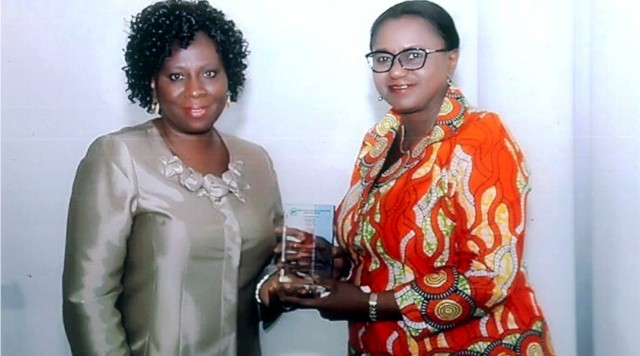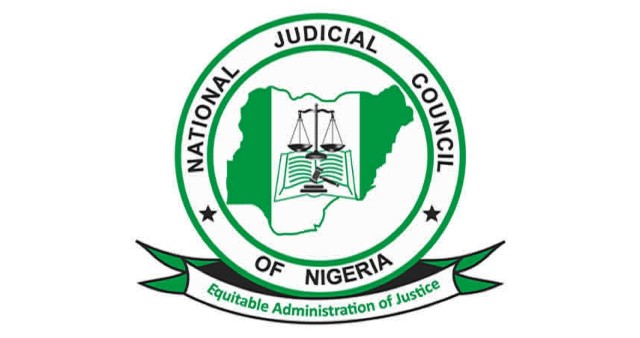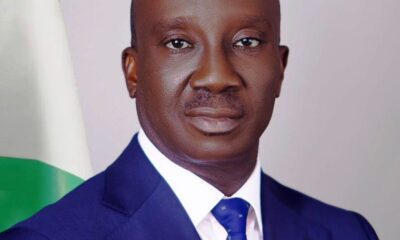Health
RSG Committed To Polio Eradication – Dep Gov

Sequel to the flag-off of the March 2017 round of National Immunization Plus Days (NIPDS) Exercise in Rivers State, the Deputy Governor , Dr Ipalibo Harry-Banigo, has assured on the commitment of the state government to end polio in Rivers State.
The Deputy Governor who made the pronouncement on Monday at the Model Health Centre, Churchill, during the flag-off of the NIDPs, stated that it is for this reason the state Governor, Chief Nyesom Wike, among other things acknowledged the convergence of the Health Care Centre across the Local Government Areas under the Rivers Primary Health Care Management Board.
“I want to assure our partners, the people of Rivers State, and Nigeria that Rivers State is going to take back its number one position in Universal Child Immunisation.
“His Excellency, Governor Wike, gave approval for the otherwise defunct state taskforce on Immunization to be resuscitated. That is why we are here today to observe the NIDPs first round.
“This is all because of the unprecedented commitment of a governor who cares for his people… This immunization must reach every child.
“We must revive all the schools, we are going to involve all the religious houses, private schools must also be included, and every child must be reached and immunised,” she said.
In an interview with newsmen at the occasion, the Permanent Secretary, RSPHCMB, Dr Agiriye Harry had revealed that a lot of awareness creation efforts had been made towards ensuring a greater reach of the populace for the immunization exercise.
“For the past three weeks, there have been constant Jingle on Radio, but the work is not just ours to do, everybody needs to be involved in it”, he said.
Dr Harry further stated that in order to ensure wide coverage of the immunization exercise, emphasis was laid on reaching the identified eleven hard to reach areas of the state.
He however noted that the key challenge experienced by the Board in carrying out its duties effectively had been how to discipline staff and prioritization of posting and Local Government Health Workers.
“Now that the government has made RSPHCMB to oversee the performance of healthcare workers, it will be easier to check their execesses”, he said.
On her part, the representative of World Health Organisation (WHO), Pharm Chineniye Okafor noted that while the world is close to eradicating polio, Nigeria is among countries currently lagging behind.
Sogbeba Dokubo
Health
‘How Micro RNA Research Won Nobel Prize’
Two United States scientists who unraveled the human micro RNA have won the Nobel Prize in Physiology or Medicine 2024.
Victor Ambros and Gary Ruvkun won the coveted prize for their work on microRNA as their discoveries help explain how complex life emerged on earth and how the human body is made up of a wide variety of different tissues.
MicroRNAs influence how genes – the instructions for life – are controlled inside organisms, including humans.
Every cell in the human body contains the same raw genetic information, locked in our DNA.
However, despite starting with the identical genetic information, the cells of the human body are wildly different in form and function.
The electrical impulses of nerve cells are distinct from the rhythmic beating of heart cells. The metabolic powerhouse that is a liver cell is distinct to a kidney cell, which filters urea out of the blood.
The light-sensing abilities of cells in the retina are different in skillset to white blood cells that produce antibodies to fight infection.
So much variety can arise from the same starting material because of gene expression.
The US scientists were the first to discover microRNAs and how they exerted control on how genes are expressed differently in different tissues.
The medicine and physiology prize winners are selected by the Nobel Assembly of Sweden’s Karolinska Institute.
They said: “Their groundbreaking discovery revealed a completely new principle of gene regulation that turned out to be essential for multicellular organisms, including humans.
“It is now known that the human genome codes for over 1,000 microRNAs.”
Health
WHO Begins Regulation On Antibiotic Waste
The World Health Organisation (WHO) has begun acting to curb effects of antibiotic pollution.
The new guidance on wastewater and solid waste management for antibiotic manufacturing sheds light on this important but neglected challenge ahead of the United Nations General Assembly (UNGA) High-Level Meeting on antimicrobial resistance (AMR) taking place on 26 September 2024.
The emergence and spread of AMR caused by antibiotic pollution could undermine the effectiveness of antibiotics globally, including the medicines produced at the manufacturing sites responsible for the pollution.
Despite high antibiotic pollution levels being widely documented, the issue is largely unregulated and quality assurance criteria typically do not address environmental emissions. In addition, once distributed, there is a lack of information provided to consumers on how to dispose of antibiotics when they are not used, for example, when they expire or when a course is finished but there is still antibiotic left over.
“Pharmaceutical waste from antibiotic manufacturing can facilitate the emergence of new drug-resistant bacteria, which can spread globally and threaten our health. Controlling pollution from antibiotic production contributes to keeping these life-saving medicines effective for everyone,” said Dr Yukiko Nakatani, WHO Assistant Director-General for AMR ad interim.
Globally, there is a lack of accessible information on the environmental damage caused by manufacturing of medicines.
“The guidance provides an independent and impartial scientific basis for regulators, procurers, inspectors, and industry themselves to include robust antibiotic pollution control in their standards,” said Dr Maria Neira, Director, Department of Environment, Climate Change and Health, WHO. “Critically, the strong focus on transparency will equip buyers, investors and the general public to make decisions that account for manufacturers’ efforts to control antibiotic pollution.”
Health
Kebbi Harmonises Doctors’ Salaries To Curb Brain Drain
In a concerted effort to curb brain drain, the Kebbi State Government has harmonised medical doctors’ salaries to be at par with their colleagues in the federal government’s tertiary health facilities.
Kebbi State Commissioner for Health, Musa Inusa-Isma’il, disclosed this at the handing over of ambulances to the state-owned health facilities at the Ministry of Health in Birnin Kebbi yesterday.
Inusa Isma’il, according to a statement by Ahmed Idris, the Chief Press Secretary to the governor, said the essence of the harmonisation was to retain the existing medical doctors and attract more to the services of the state.
According to him, the doctors across the state had already started enjoying the new salaries from August 2024.
He said the release of the vehicles was in fulfilment of Governor Nasir Idris’ promise to uplift health care services in the state.
“His Excellency said I should inform you, the beneficiaries of this gesture, that the vehicle should be strictly used for the intended purpose. It should not be used for anything else.
“If there is no referral case, each of the vehicles must be parked at the hospital by 6 pm. The governor said you should warn your drivers against reckless driving as well as violating the instructions.
“We should also do everything possible to reciprocate the gesture by working according to the terms and conditions attached,” he advised.
The benefiting health facilities included Sir Yahaya Memorial Hospital, Birnin Kebbi; State Teaching Hospital, Kalgo; General Hospital, Argungu; General Hospital, Yauri; General Hospital, Zuru; and General Hospital, Bunza.
In his speech, the permanent secretary of the ministry, Dr Shehu Koko, recalled that the ambulances were handed over to the ministry last Friday by the governor for the onward handover to the benefiting hospitals.
He observed that the ambulances would go a long way in improving the referral system in the state, adding that delays in reaching the secondary and tertiary facilities would be eliminated.
The permanent secretary attributed the high rate of maternal mortality in the country to delays in getting to the health facilities for proper medical care.
“We believe with the provision of these ambulances, part of the gaps we have in our referral system will be addressed, whereby patients who require secondary healthcare could be easily transported to secondary and tertiary health centres, where they can get such help,” he said.
In a goodwill message, Commissioner for Information and Culture Alhaji Yakubu Ahmed expressed gratitude to the governor for the support he has given to the ministry to excel.
While advising the beneficiaries to use the vehicles judiciously, the commissioner advised that services and maintenance of the vehicles must be prompt to derive the maximum benefits from the vehicles.
The commissioner also highlighted some achievements recorded by the government in the last year, including beautification of the state capital, completion of a multimillion-naira ultramodern state secretariat, road construction, construction and renovation of classrooms and upgrading of some health facilities, among others.
-
Politics2 days ago
No Southerner Can Successfully Challenge Tinubu In 2027 – Momodu
-

 Nation1 day ago
Nation1 day agoHYPREP Inducts 100 Ogoni Youths For Creative Arts Training
-
Niger Delta2 days ago
Falling Trees Destroy Properties In Calabar
-

 News2 days ago
News2 days agoThree Judges Suspended As NJC Voids Imo Acting CJ’s Appointment
-
Business2 days ago
FG Introduces Zinc Rice Varieties For Food Safety
-

 News2 days ago
News2 days agoOkpebholo Approves New Minimum Wage Of N75,000 For Edo Workers
-
Politics2 days ago
NASS To Prioritise Workers’ Welfare, Akpabio Assures Labour On May Day
-
Niger Delta2 days ago
Federal Workers Shun Protest In C’River

